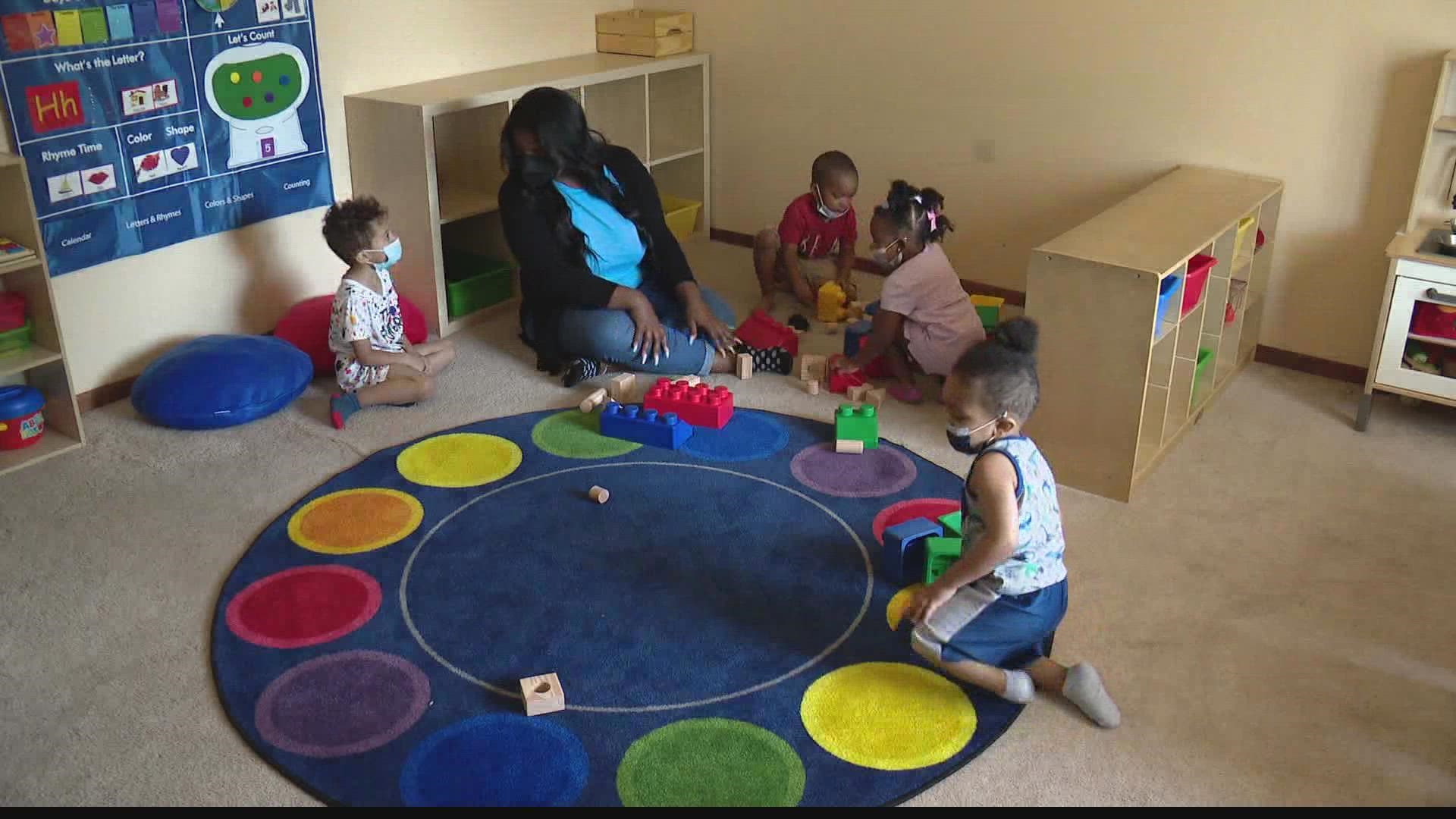ST. LOUIS — When you step into Adesha Armstrong's Florissant home, you realize, she doesn't have much space to herself. The entryway to her house is lined with wooden lockers fit for child-size coats and shoes. What would be her front living room is a playroom for toddlers.
If you walk through her hallway and turn into the kitchen and dining room space, you see another play area with tiny kitchens and bookcases.
While it makes her commute short, she has turned the majority of her home into a full-time childcare center called the Early Adventures Learning Center.
"I actually started this program in 2017 when I needed to find a program for my daughter," said Armstrong. "I couldn't find options that worked for me as a single mom."
Armstrong was already an early childhood education student, so she decided to put her education to work. She also decided to open her own program to meet the needs of the community. Her friends tell her all the time that she needs to raise her rates, but she promised that she would always be accessible to families. She now is licensed to take care of 10 children.
"A lot of providers and owners I know are taking money out of their own pockets to make sure that their programs have what they need," said Armstrong. "And you want to be equitable. You want to be accessible to the families in your community."
Armstrong is one of many caregivers now going before the St. Louis County Council in a public hearing to ask leaders to earmark $25 million in American Rescue Plan Act dollars to prioritize early childcare education.
Missouri was the last state to allocate any ARPA funds to early childcare, despite a national crisis of childcare workers leaving their professions during the pandemic, often leaving many parents of young kids in the lurch for childcare.
It is well-known that childcare workers are vastly underpaid, often making less than $11 an hour.
"We're not just the babysitters. We're not just daycare," said Armstrong. "We're educators."
"So that's another reason why it's so hard to get childcare teachers in and retain them when we're competing with McDonald's and White Castles that start at $15 an hour," said MacKenzie Grayson, the project coordinator of the Gateway Early Childhood Alliance. "That's really hard to fathom being able to have to take care of their families."
Grayson and Armstrong are just two people who are working together to form the Early Childhood Power and Policy Action Group to push policy change in St. Louis.
The group says 50% of childcare workers qualify for government assistance. Ninety-two percent of childcare providers identify as female and 40% identify as people of color.
The coalition hopes ARPA funds can be used for two existing programs – the WAGE$ and the T.E.A.C.H programs. The Child Care WAGE$ Program is an education-based salary supplement program that provides an incentive to early childhood professionals based on their level of education and longevity in the childcare field.
The T.E.A.C.H. MISSOURI Scholarship Program contracts directly with the scholarship recipient and sponsoring childcare employer to support tuition and book reimbursements, paid time off to study, a semester expense stipend for things like gas and technology, and an annual completion bonus.
"There is no reason that people that take care of our children every day have to go apply for food stamps or be on state medical," said Grayson. “You know, that's really hard to think about, especially when you want people to be in this profession because they want to be here and because they can afford it. We really need a thriving wage. We need to be able to provide for our families the way that the children that we serve, and their families are able to provide for them."
The group will try to pack the St. Louis County Council chambers Tuesday at 1:30 p.m. to testify to leaders about the challenges early childhood care providers face. The group is also asking people to sign a letter to demand change.

